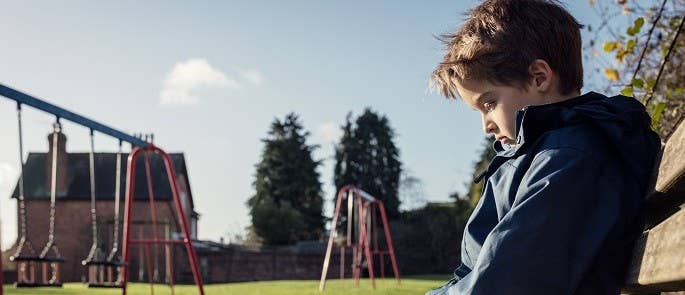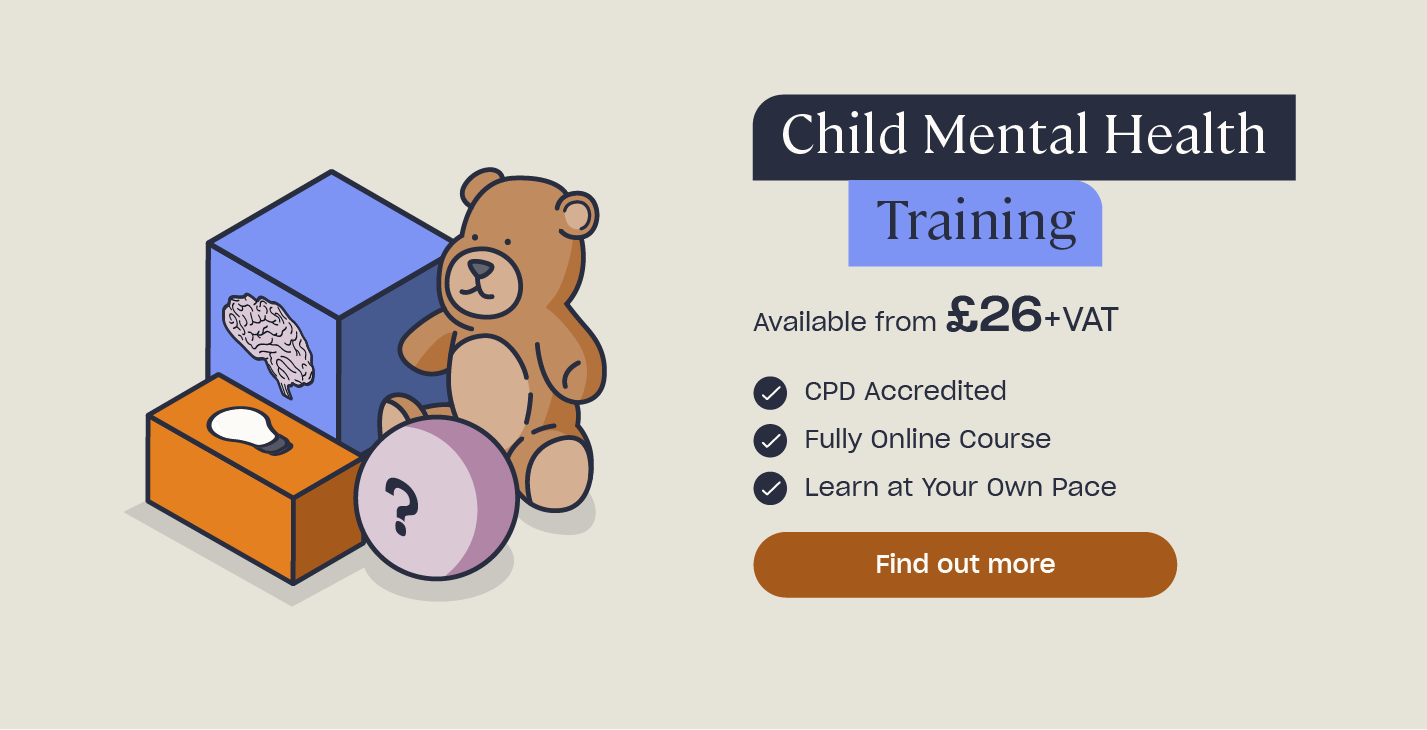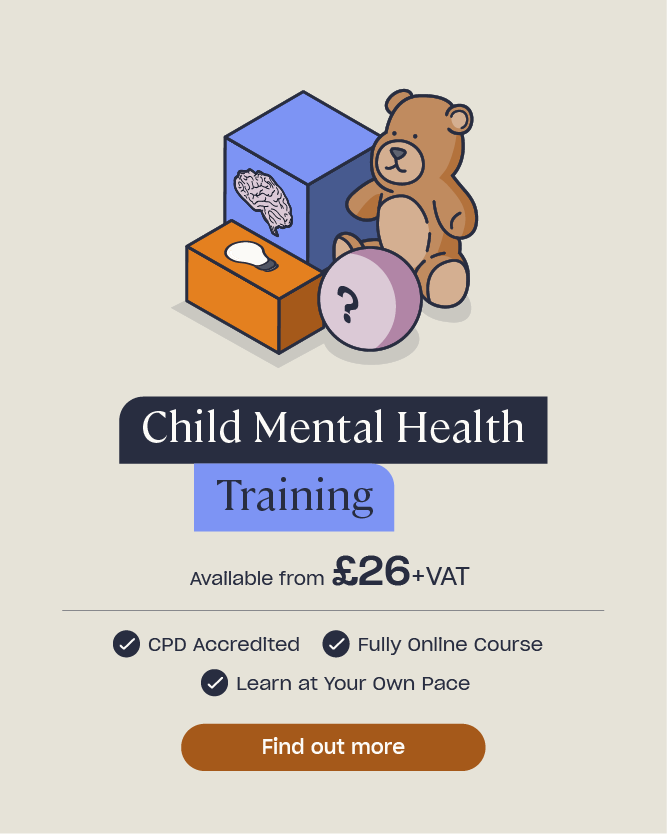Adverse Childhood Experiences: Guidance for Schools
Almost 50% of adults in England and Wales experienced one adverse childhood experience (ACE), with one in ten suffering four or more (Public Health Network Cymru). Stopping ACEs means levels of violence would be cut in half, dependencies on drugs and alcohol would decrease, and overall wellbeing would improve. Fewer ACEs in childhood would also mean fewer adults developing diseases such as cancer, diabetes, and heart disease.
School and college staff, under the statutory Keeping Children Safe in Education guidance, should be aware of the possible impacts of ACEs on children, now and in the future. Being ACE aware means that you strive to ensure that all children have the best possible childhood experiences and life outcomes.
In this article, we’ll define adverse childhood experiences (ACEs), detail the impact ACEs have on child development, explain why it’s so crucial that schools understand the impact of ACEs, and provide guidance on how schools can support children who have experienced ACEs.
‘Where children have suffered abuse and neglect, or other potentially traumatic adverse childhood experiences, this can have a lasting impact throughout childhood, adolescence, and into adulthood. It is key that staff are aware of how these children’s experiences can impact on their mental health, behaviour, and education.’
KCSIE

What are Adverse Childhood Experiences?
Adverse childhood experiences are stressful and/or traumatic events which take place in childhood or adolescence. ACEs can be a single event or continued threats to a child or young person’s safety, physicality, or trust. A 2014 study on ACEs found that 47% of UK adults had experienced at least one ACE, with almost 10% of the population having four or more ACEs (Bellis et al, 2014).
‘Adverse childhood experiences (ACEs) are traumatic events or chronic stressors that are uncontrollable to the child.’
Corcoran and McNulty, 2018
The American Adverse Childhood Experiences Study, which began in 1994 and has been supported by Drs. Felitti and Anda, screened over 17,000 adults for their history of exposure to ACEs. Those ACEs included physical, emotional, and sexual abuse, physical or emotional neglect, parental mental illness, substance dependence, incarceration, parental separation or divorce, or domestic violence. Once participants received their ACE scores, these were compared alongside their health outcomes. The results were stark – the higher your ACE score, the worse your health outcomes. For example, those who experienced four or more ACEs in childhood were four and a half times more likely to suffer from depression than someone with an ACE score of zero, three and a half times more likely to experience heart disease, and twelve times as likely to attempt to take their own life.
ACEs can have an incredibly damaging long-term impact on children’s future prospects, and their mental and physical health. Traumatic events can create high levels of toxic stress which, if prolonged and persistent, can impact brain development and functioning.
‘A toxic stress response can occur when a child experiences strong, frequent, and/or prolonged adversity without adequate adult support. Prolonged activation of the stress response systems can disrupt the development of brain architecture and other organ systems, and increase the risk for stress related disease and cognitive impairment, well into the adult years.’
US National Academy of Sciences, Engineering, and Medicine, 2019.

Examples of ACEs
Examples of ACEs include the following (although this list is not exhaustive):
- Experiencing emotional, physical, and/or sexual abuse.
- Living with someone who abused drugs or alcohol.
- Being exposed to domestic violence.
- Living with someone with serious mental illness.
- Living with someone who has been incarcerated.
- Losing a parent through divorce, abandonment, or death.
Find out more about child mental health
If you work with children, then it’s vital that you’re aware of the range of emotional and mental health needs they may experience. Our Child Mental Health course provides learners with a detailed overview of children’s mental health needs. It will inform you how to identify and support a child who may be struggling, and how to promote positive mental health and wellbeing in your setting. You may also be interested in our Designated Safeguarding Lead training, which will help those with key safeguarding responsibilities to respond effectively to any mental health safeguarding concerns.

What Are the Lifelong Consequences of Trauma?
‘Early adversity dramatically affects health across a lifetime. Exposure to ACEs affects the developing brains and bodies of children. Severe childhood trauma affects the developing immune and hormonal systems, the way our DNA is read and transcribed, and brain development. For example, on MRI scans, we see measurable differences in the amygdala, the brain’s fear response centre.’
Surgeon General, paediatrician, and author, Nadine Burke Harris
Put simply, the higher an individual’s ACE score, and the longer they experience an ACE, the bigger impact it will have on their long-term physical and mental health throughout childhood, adolescence, and adulthood. A high ACE score puts individuals at a greater risk of developing the following:
- Alcoholism and alcohol misuse.
- Drug misuse and addiction.
- Heart disease.
- Mental health problems.
- Liver disease.
- Poor academic achievement and work performance.
- Financial problems and stress.
ACEs can also affect an individual’s chances of forming healthy attachments in future relationships, and their ability to recognise and control their behaviour and emotions. People with higher ACE scores are more likely to experience early initiation of sexual activity, and have multiple sexual partners. They also have a greater risk of experiencing sexual violence.

Why Is it Important for Schools to Raise Awareness of ACEs?
It is now statutory for all school and college staff to know about ACEs and their impact under the latest safeguarding children legislation. Education professionals have a unique opportunity in helping to identify and support children who have previously experienced – or are currently experiencing – an ACE. Their role is crucial in helping children to achieve the best possible outcomes – personally, socially, emotionally, and academically.
ACEs have a direct impact on academic progress and achievement. They can impact cognitive functioning, working memory, attention, and language acquisition – which can lead to poorer overall academic performance. ACEs also affect attendance and behaviour. Children and young people who have experienced multiple ACEs are less likely to care about doing well in school and are less likely to do homework (McDowell, 2017).
Whether it’s a physical mark, a comment, concerning changes in their mental or physical health, or challenging behaviour, it’s everyone’s responsibility to act upon safeguarding concerns – report them to your Designated Safeguarding Lead immediately. Early identification can truly help to change a child’s life.
‘If staff have a mental health concern about a child that is also a safeguarding concern, immediate action should be taken, following their child protection policy, and speaking to the designated safeguarding lead or a deputy.’
KCSIE

How to Prevent Adverse Childhood Experiences
Strategies schools and colleges can implement to help both prevent and reduce ACEs include:
Keep parents and carers informed – Provide parents with access to resources to help them understand more about mental health and trauma in children. Make sure that parents and carers understand how ACEs can affect children’s development. They need to be aware that the consequences of trauma experienced in childhood may not be immediately apparent. Parents and carers need to know how to support children in managing stressful situations, as well as how to identify signs which may suggest the child may be struggling. You could run webinars, host in-school training sessions, share resources on your school or college’s social media site, and send home information via leaflets or posters. Learning about how to adopt healthy lifestyles and relationships can make a huge difference in a child’s life.
Aim to prevent ACEs – We can help to reduce and mitigate levels of adversity experienced by children by improving community wellbeing – as individuals, families, and groups. Educating and informing people about how to live healthier lifestyles can improve wellbeing, and therefore reduce -or even stop – ACEs from occurring. Schools can help to reduce the stigma around childhood adversity by asking children and adults to focus their attention away from ‘what’s wrong with this child?’ to ‘what’s happened in their life that’s causing this behaviour?’ If a child displays behaviour which you believe relates to an unmet mental health need, look carefully at your Universal and Targeted Provision and consider adaptations or practices to promote positive wellbeing, such as positive classroom management, small group work, nurture groups, social skills teaching and development, and peer mentoring.
Work with local services – Where Assess, Plan, Do, Review has highlighted the need for further action, some children may require support from external bodies. Children and young people’s mental health services (CYPMHS) can offer advice and support in a number of ways to help children and young people manage some of the impacts of ACEs. After initial assessment support, CYPMHS professionals can offer therapies such as Cognitive Behavioural Therapy (CBT), Eye Movement Desensitisation, and Reprocessing Therapy (EMDR). They can also help to connect young people with other local community services.
Think whole school – Provide a range of professional development opportunities for staff to widen their knowledge of ACEs and their potential impact, especially ECTs and those in ITT. Despite knowledge and understanding of attachment and the effects of trauma now being statutory, it is only addressed by a minority of teacher training programmes. Schools can consider adopting whole-school strategies as part of their training, such as those in the Attachment Aware Schools Programme. Delivered in partnership with Bath University, the training highlights the importance of implementing attachment- informed practices in schools. Researchers found that the training had an impact on whole-staff understanding of attachment, the meaning behind behaviour, and emotional well-being. Participants described changes in their practice, in particular recognising emotions while managing behaviours, varying communication styles and language used with pupils and other staff, as well as reductions in emotional problems, conduct problems, hyperactivity, and peer-on-peer behavioural problems.

Adverse childhood experiences (ACEs) are common. They cannot simply be ignored. Education professionals have a vital role in helping to both mitigate the incidences of ACEs and support children who may have experienced them. All staff should receive attachment and trauma training, and create supportive and nurturing environments, where positive mental health is promoted. ACE-aware schools and colleges will benefit all children, as well as wider society.
Further Resources:
- Child Mental Health Training
- How to Support SEMH in Schools
- Safeguarding Against Child Exploitation and Abuse: A Resource Pack for Schools
- Safeguarding Children Legislation: Guidance for Schools
- What is the Toxic Trio?
- What is Trauma Informed Practice in Schools?
- What is Fabricated and Induced Illness?
- Understanding the Different Forms of Child Neglect
- Child Sexual Abuse: Guidance for Schools
- Supporting Young Carers: A Guide for Teachers
- Signs of Abuse in Children











